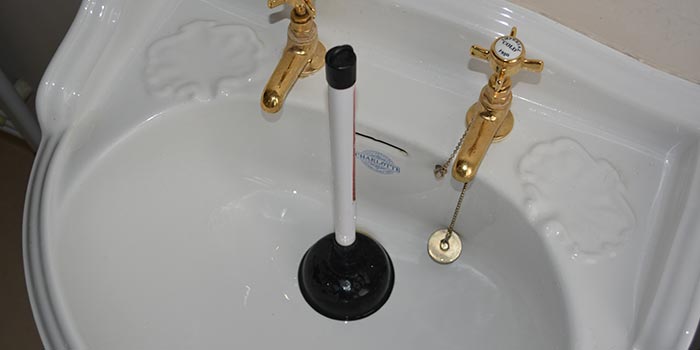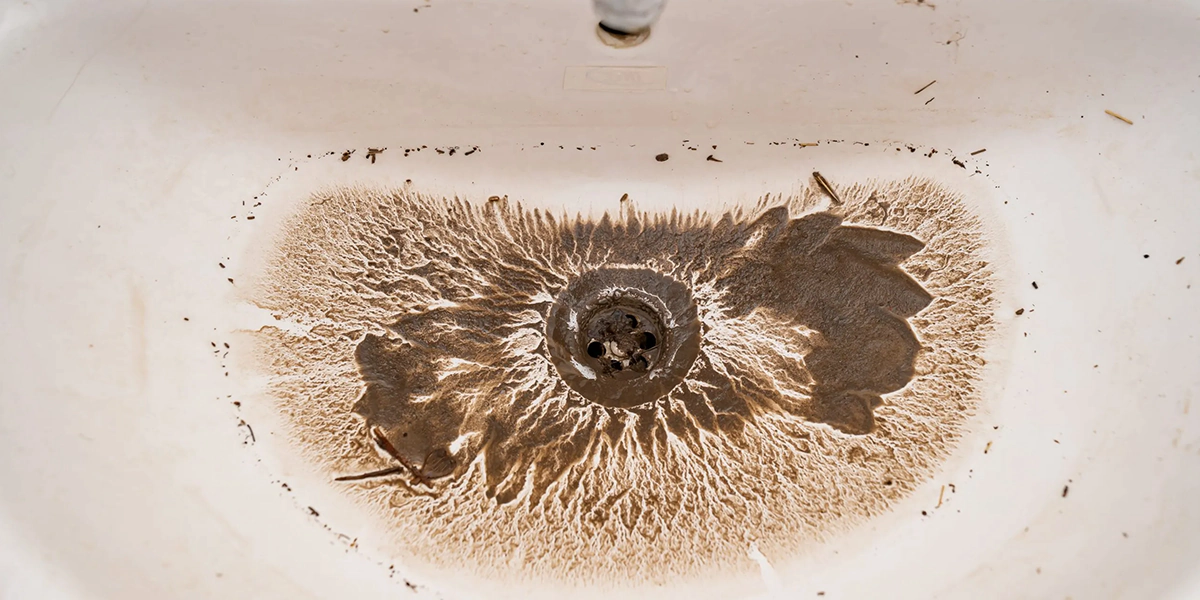Methods To Resolve A Slow-Draining Sink
Methods To Resolve A Slow-Draining Sink
Blog Article
Here underneath you'll find additional reliable expertise related to 7 Ways To Fix A Slow-Draining Sink Before You Call A Plumber.

Intro
We've all existed: You're cleaning your teeth or washing your hands, and you notice the water merging in the sink. Rather than swiftly swirling away, it sticks around, transforming your once-refreshing morning regimen into a miniature overload scene. A slow-draining sink isn't simply bothersome; it's typically a sign of larger plumbing concerns hiding below the surface area. The good news is that the majority of slow-draining sinks can be repaired with a little expertise, a few standard tools, and some persistence. Prepared to tackle this task head-on? Allow's roll up our sleeves and dive right in.
Recognizing the Reasons For a Slow-Draining Sink
Before you start poking around in your pipelines, it aids to recognize what might be triggering the slowdown. Understanding the root cause makes it much easier to select the ideal repair.
Tools and Materials You'll Require
The right tools make all the difference. The good news is, you will not need a fully equipped plumbing professional's van to do the job.
Step-by-Step Guide to Dealing With a Slow-Draining Sink
Now, allow's enter the nitty-gritty. This detailed process will certainly direct you via easy strategies to restore your sink's drain.
Action 1: Remove and Clean the Stopper
Often, the stopper (that little plug you lower to obstruct water) is the first offender. Remove it very carefully and clean off any type of hair or crud entraped around its base. Wash it extensively prior to placing it back in position.
Action 2: Make Use Of a Bettor to Dislodge Particles
Got that bettor all set? Placement it over the drainpipe and offer it a couple of company pumps. The idea is to produce suction that can loosen any clog. If you see littles debris floating up, you get on the appropriate track.
Action 3: Try a Drainpipe Snake or Cable Wall Mount
If the plunger does not suffice, it's time to highlight the drain snake. Delicately feed it right into the drainpipe and spin as you go. You could really feel some resistance-- that's likely the blockage. Maintain turning and drawing till you get rid of the obstruction. If you do not have a drainpipe snake, a straightened cord hanger can operate in a pinch.
Step 4: Use a DIY Drainpipe Cleaner
A natural cleaner made from baking soft drink and vinegar can break down recurring grime. Pour half a mug of baking soft drink into the drain, followed by half a cup of vinegar. Allow it fizz for around 15 minutes, after that flush with hot water. This chemical reaction frequently does wonders for minor obstructions.
Tip 5: Rebuild and Test the Sink
Put whatever back together and run the faucet. Does the water now swirl down the tubes at a decent speed? If yes, provide yourself a pat on the back. If not, do not misery-- there are still a couple of more tricks up your sleeve.
Vital Tools for DIY Services
A plunger is your best starting point. A tiny, sink-sized plunger creates suction that can displace minor blockages. For even more persistent blockages, a drainpipe serpent (occasionally called a plumbing's auger) functions wonders. A set of handwear covers, a flashlight, and maybe a set of protective goggles are additionally handy.
Advised Cleaning Solutions
Moderate dish soap and warm water can aid break down greasy accumulation. A mixture of baking soft drink and vinegar is a reliable natural home remedy, and chemical cleaners provide a more green approach. Keep chemical drain cleaners as a last resource, as they can be harsh on your pipes.
Typical Wrongdoers Behind Slow Water Drainage
So, what's clogging things up? Generally, it's a mixture of everyday particles-- believe hair, soap residue, toothpaste deposit, and leftover food particles. With time, these little bits build up and cling to the pipeline walls, slowly narrowing the passage and making it harder for water to travel through. Sometimes, natural resource from tough water can also include in the crud, producing the excellent tornado for stubborn obstructions.
When is it Time to Do Something About It?
If you discover the water draining slower than normal, it's a good concept to interfere quicker as opposed to later. Waiting also long might lead to finish obstructions, unpleasant smells, or even pipe damage. If the water takes more than a couple of seconds to clean out after switching off the faucet, consider it a red flag and prepare yourself to place on your do it yourself hat.
Safety First: Safety Measures and Preparations
Before you launch into unclogging mode, consider security. You're dealing with possibly unclean water and debris, so slip on a pair of gloves. If you're using chemical cleansers, make sure the area is well-ventilated and adhere to the directions on the label.
Safety Equipment and Office Setup
Set some old towels or cloths around the sink area to catch dashes. Clear away any kind of items that may enter your method, like soap dispensers or tooth brush owners. Ensure you have excellent lighting-- get hold of a flashlight if required.
Alternative Techniques for Stubborn Clogs
Not all clogs are produced equivalent. If your sink still rejects to cooperate, think about these alternate solutions.
Sodium Bicarbonate and Vinegar Approach
We currently touched on this, but it deserves keeping in mind again. This mild, environment-friendly technique is safer than chemical cleansers and typically quite efficient.
Enzymatic Drain Cleansers
Enzyme-based cleaners make use of natural germs to digest organic matter. They're an outstanding choice if you're wanting to prevent extreme chemicals. Just keep in mind, they may take a bit longer to function their magic.
Chemical Drain Cleansers: Advantages And Disadvantages
Chemical cleansers can blast via hard obstructions fast, but they're not without disadvantages. They can create warm and fumes, damage pipelines if used excessively, and present environmental threats. Use them moderately, and always adhere to the directions meticulously.
Preventive Measures to Maintain Your Sink Flowing
Prevention is the most effective remedy. By taking on a few basic habits, you can keep your sink from decreasing in the first place.
Routine Cleaning Up Routines
Wipe down the sink basin and fixture area routinely. Eliminate hair or food bits prior to they have a chance to wash down the drain.
Avoiding Hazardous Substances Down the Drain
Hesitate before disposing coffee grounds, oil, or coarse veggie scraps down the sink. These offenders cling to pipeline walls, creating clogs gradually.
Routine Upkeep Checks
Arrange a fast regular monthly evaluation. Run warm water through the sink for a few mins, paying attention to the flow. If it seems slow, act quickly prior to it ends up being a full-on obstruction.
When to Call an Expert Plumber
In some cases, no matter just how hard you attempt, that obstruct just will not budge. That's when it's time to generate the pros.
Indications That Suggest an Extra Severe Concern
If your sink drains pipes slowly regardless of multiple attempts, or if you observe water supporting in various other fixtures (like your shower or toilet), you may have a much more severe pipes concern prowling much deeper in the system.
Stabilizing Do It Yourself Initiatives with Specialist Aid
While do it yourself can conserve you cash and use a feeling of achievement, there's no pity in calling a professional. A professional plumbing professional can analyze your whole plumbing setup, making certain there's no underlying damage or long-lasting trouble that might cost you more in the future.
Contrasting Costs and Long-Term Solutions
Before choosing, consider the big picture. An inexpensive, quick fix may address the trouble temporarily, but buying a more long-term remedy could save you cash and stress over time.
Weighing the Expenditures of DIY vs. Professional Fixes
Do it yourself solutions often set you back bit more than the cost of a plunger or a bottle of baking soda. Specialist services, on the other hand, included a cost yet might protect against repeated issues and costly repair services later on.
Buying Top Quality Fixtures and Upgrades
If your sink's design contributes to regular obstructions, it might be worth updating to higher-quality fixtures or changing the pipes format. Consider this a financial investment in your house's functionality and comfort.
Final thought
A slow-draining sink can feel like a small inflammation, however it's usually an indicator that your pipes needs a little TLC. By understanding the source, employing the right devices and strategies, and committing to easy preventive measures, you can keep your sink moving easily. And when all else falls short, never hesitate to employ a professional-- your home's pipes is worth the investment in care and maintenance.
Three Common Ways to Fix a Slow Drain
Baking Soda Method
Boil a full pot of water. Measure out cup of baking soda and pour it down the drain. Then take cup of the magical cleansing substance known as white vinegar and drop that down there too. Allow the mixture to fizz in the drain for five minutes as the vinegar and baking soda combine. Now dump in that whole pot of boiling water. This combination of cleaning substances should clear out anything that is causing your sink to drain slowly. If it doesn t...
Zip-It
If the baking soda method doesn t clear out your drain, it may be because a significant amount of hair and/or other debris has collected there and you need to remove it. Purchase a Zip-It tool at any home improvement or hardware store and insert it into your drain. It will catch any collected hair or debris that s blocking the flow of water. Pull it out. If it s got a big clump of hair, etc. on the end, you ve probably got your culprit.
Drain Cleaner
If these methods don t work, there is the standard drain cleaner that you can also buy in a hardware store or even your local grocery store. It s better if you can use a household solution, but these drain cleaners often work in a pinch. They re very simple to use. You generally just dump them in your drain and wait. If even this method is not effective, it may be time to call the plumber.
https://www.mrrooter.com/oneida/about-us/blog/2017/july/three-common-ways-to-fix-a-slow-drain/

We hope you liked our excerpt about How to Fix a Slow Draining Sink. Thank you so much for taking the time to browse our posting. Sharing is nice. Helping others is fun. I treasure reading our article about .
Call Today Report this page